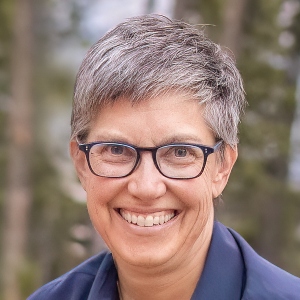Learning leaders are all about professional development—for the people in their organizations. When it comes to their own professional development and career pathing, where do they turn?
A recent Learning Guild research report explored the value of academic degrees, from bachelor’s degrees through doctorates, to learning and development (L&D) professionals hoping to advance their careers. Options outside of degrees—such as certificates—abound; how helpful are these? Are advanced degrees necessary? What’s the best approach for an L&D pro looking to move into learning leadership?
Academic degrees vs. certificates
In researching her report, Guild Research Director Jane Bozarth spoke with Karl Kapp and Allison Rossett about the value of advanced academic degrees in the learning and development arena. Part of their conversations focused on the difference between a degree and a certificate program at a university.
A certificate in this context is a university-based program of study that does not result in a degree but is made up of coursework and projects that may meet a portion of the requirements for a bachelor’s or master’s degree.
Certificates are more narrowly focused than degrees and may place more emphasis on “things that you know and can do,” according to Rossett, who is professor emeritus, San Diego State University. In contrast, she added, a master’s degree goes beyond practical skills, teaching students how to learn, where to find the best sources of information, and how to chart their own continuous professional development. Doing a master’s program is also a way to form professional relationships and contribute to the field through research and conference presentations—themselves ways to advance one’s career, while exposing the master’s student to “more questions and more ways to answer those questions.”
Kapp describes the difference as one of depth, describing certificates as providing a level of knowledge and experience, but adding that if you want deep knowledge and recognition as an expert in the field, a master’s degree is the way to go. “Deep expertise and mastery comes from that level of exploration; a certificate doesn’t give you the same depth of understanding,” he said.
While few practitioners have doctorates, that represents an even deeper level of exploration and, like a master’s, can open career advancement doors. Many CLOs and consultants have doctorates, Kapp pointed out, and a terminal degree is generally needed to teach at the college level.
Connie Malamed, a learning experience consultant and design expert, maintains a list of US-based in-person and online instructional design degree and certificate programs on her website—it’s a long list! While Malamed doesn’t recommend programs, she provides a great place to start researching what’s available.
Professional development outside of academia
Practitioners may delve into options that are less costly and time-intensive than academic degrees in hopes of deepening their knowledge and improving the trajectory of their careers.
Hiring manager Heidi Harris Matthews spoke with Bozarth about this, sharing a different perspective from that of Kapp and Rossett: “There’s a lot of other places to get the skill set,” she said, adding that she values the “education element” and whether a job applicant has taken active measure to enhance their eLearning skills, such as courses or workshops focused on tools or visual design skills.
Courses and certificates
Online learning professionals can, of course, turn to their own profession and seek professional development via online training, of course. Those “other places” Matthews referred to run the gamut from professional-association certifications, like the Association for Talent Development’s (ATD) CPTD (certified professional in talent development) and APTD (associate professional in talent development) programs to certificates from online educators like LinkedIn Learning or Coursera—and ATD.
Online conferences
Themed or single-topic one- and two-day online events are an easy way to explore a topic in depth and decide whether more focused study is relevant. Ranging from webinars and workshops sponsored or run by eLearning vendors to educational events organized by professional development organizations—The Learning Guild produces several each year, including some focused on learning leadership—online events are a cost-effective way to learn and build a network.
Conferences and workshops
Even online training professionals like to meet up in person sometimes … and networking and learning with colleagues is an appealing way for many L&D professionals to build their skills. Events like The Learning Guild’s three annual conferences, each with a selection of day-long workshops, offer a wealth of opportunities to share ideas, learn from peers, and take focused short or long sessions designed to hone skills and deepen knowledge.
Credentials in adjacent fields
L&D professionals might also consider skills development or degrees in complementary areas to instructional design and educational technology. Skills sharpened in an MBA program or certificate in project management, artificial intelligence and machine learning, or game design could be very useful in today’s online training and development arena.
Lifelong learning for learning leaders
Like Malamed, Learning Solutions doesn’t recommend any specific paths or programs, but recognizes that learning is a lifelong endeavor—and as learning leaders, it’s one that many readers are avidly interested in exploring. And The Guild offers many channels for learning leaders to grow their knowledge and advance their careers. The upcoming Learning 2021 conference includes significant content targeting learning leaders and aspiring leaders, for example.
The Learning Leaders Alliance is a vendor-neutral global community for learning leaders who want to stay ahead of the curve and for aspiring leaders wanting to build their skillsets. The Learning Guild’s Alliance Membership package includes access to exclusive digital events and content curated for today’s modern learning leader, as well as opportunities to attend in-person learning leadership events held around the globe. See the details on our website.


